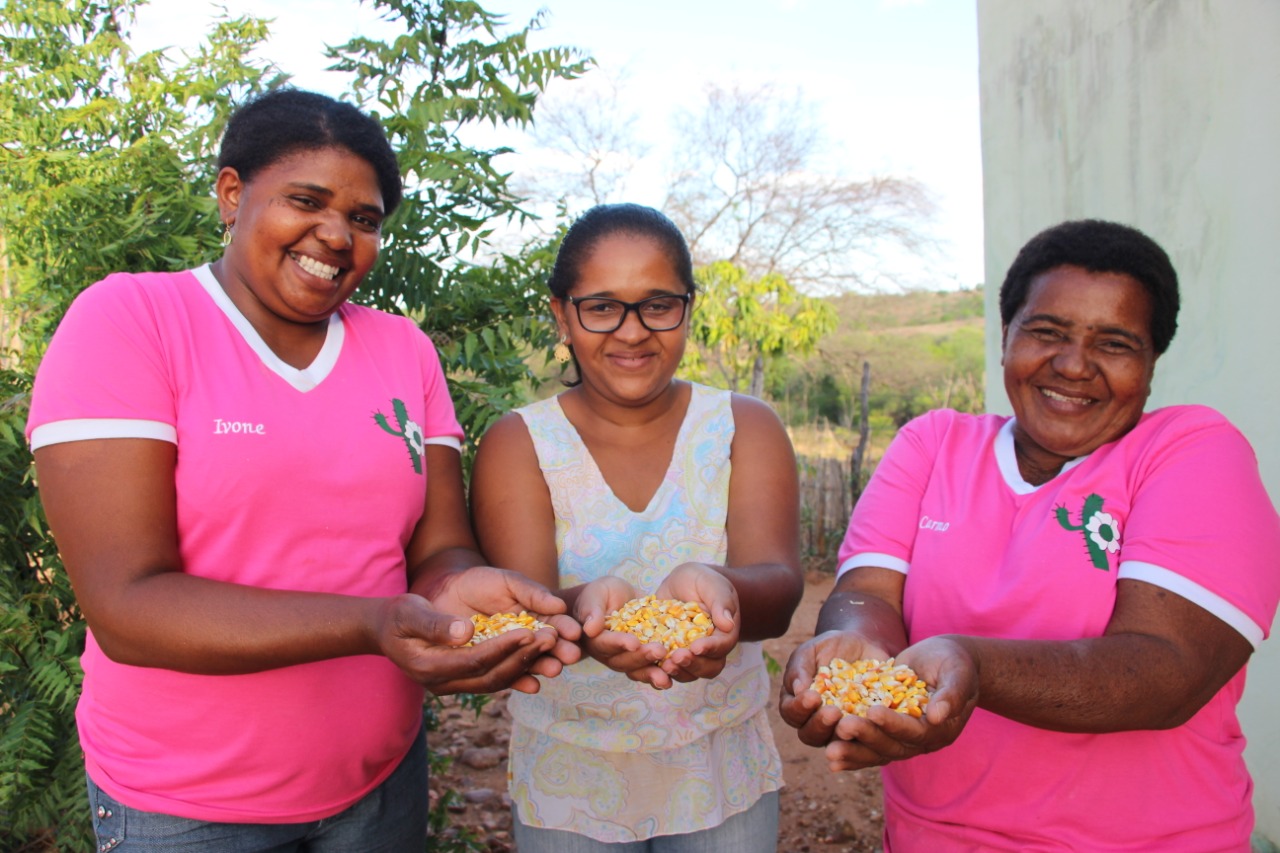Casa da Mulher do Nordeste

- Localização
- Afogados da Ingazeira, PE
- Apoiado em
- 2020
- Áreas atendidas
- Socioeconomic Development
Casa da Mulher do Nordeste
Women in Caatinga – Supplying Food and Generating Income
Promote the economic and political autonomy of women, strengthening agro-ecology through feminism and racial equality. Established in 1980, Casa da Mulher do Nordeste addresses the need to transform the role played by women in the economy. Initially focused on providing technical assistance to women in the rural community of Sertão do Pajeú, Casa da Mulher subsequantly broadened its scope focusing its efforts on the feminist movement and national agroecology instead.
The development of a female workforce in Pajéu is restricted by the invisibility of women in familial agriculture, the lack of female access to public politics as well as a constant threat of violence. Casa da Mulher will strengthen the economic autonomy of local agriculturists as a means to establish sustainable increased production. This is meant to offer efficient alternatives in the constant struggle against sexism and domestic violence. Also guaranteeing a constant source of food and income to these women.
Casa da Mulher has adapted its project to be held in an online environment, providing participants with presentations on how to navigate the platform being used.
Website: www.casadamulherdonordeste.org.br
The support of BrazilFoundation will allow Casa da Mulher do Nordeste:
● Educate forty female agriculturists on how to market, improve labor conditions and generate income
● Provide technical assistance to four groups of women focusing on the development of agroecological practices in gardens, business management and commercialization
● Stimulate the creation of productive congregations in local communities
● Contribute to a 10% increase in income
Data
The impact of forty female agriculturists and their families
10% increase in family revenue
Bolster the economic autonomy of female agriculturists
Testimony
Poverty and domestic violence directly impacts women, who struggle for the socioeconomic survival of their families. An increase of work within in communal gardens is crucial to combat and overcome gender inequality.